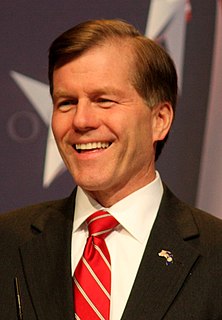
United States gubernatorial elections were held Tuesday, November 4, 2008 in 11 states and two territories. Prior to the election, eight of the total seats were held by Democrats and five by Republicans. Two governors were prohibited by term limits from seeking re-election in 2008.

General elections was held in American Samoa on 4 November 2008, coinciding with the 2008 United States general elections.
Velega Savali Savali Jr. is an American Samoan politician. Savali was a candidate for Lieutenant Governor of American Samoa in the American Samoan gubernatorial election in 2008. He served as the American Samoa Treasurer from 2005 until 2008.

The 2008 American Samoa gubernatorial election took place on November 4, 2008, coinciding with the 2008 United States general elections and the American Samoa general election. Because no candidate received more than 50% of the vote, a runoff election between the top two candidates was held on November 18, 2008, which Togiola Tulafono won. All elections in American Samoa are officially non-partisan, but Tulafono and Sunia identify with the Democratic Party.
Afoafouvale Leulumoegafou Su’esu’e Lutu is an American Samoan politician and lawyer. Lutu has served as the former Attorney General of American Samoa in two different administrations. He is the current senator from the district of Maoputasi, serving the villages of Fagatogo, Utulei and Faga'alu.

Utu Abe Malae was an American Samoan politician, banker and businessman. Malae, a former member of the American Samoa Senate, was a candidate for Governor of American Samoa in the 2008 gubernatorial elections, finishing second in the runoff to incumbent Governor Togiola Tulafono.
Nua Mailo Saoluaga is an American Samoan politician. He served as the Speaker of the American Samoa House of Representatives from 1997 until 2002.

'Ili'ili is a village in the southwest of Tutuila Island, American Samoa. It is located seven miles inland, southwest of Pago Pago, between the villages of Futiga and Vaitogi.

United States gubernatorial elections were held in 12 states and two territories. Of the eight Democratic and four Republican seats contested, only that of North Carolina changed party hands, giving the Republicans a net gain of one governorship. These elections coincided with the presidential election on November 6, 2012.

The United States House of Representatives election in American Samoa, which will contest American Samoa lone At-large congressional district, was held on November 2, 2010. The non-voting delegate to the United States House of Representatives is elected for two-year terms; whoever is elected will serve in the 112th Congress from January 3, 2011 until January 3, 2013.

The 2012 Montana gubernatorial election took place on November 6, 2012, to elect the Governor of Montana. Incumbent Democratic Governor Brian Schweitzer was term-limited and could not run for re-election to a third term.

The 2012 American Samoa gubernatorial election took place on November 6, 2012, for the open gubernatorial seat of American Samoa. The election coincides with the larger United States presidential elections, United States general elections and the American Samoa general election. Since no candidate received a majority of the vote on November 6, a runoff election was held on Tuesday, November 20, 2012, which was won by Independent candidate Lolo Letalu Matalasi Moliga.
Save Liuato Afa Tuitele is an American Samoan retired judge and politician. He was one of six candidates for Governor of American Samoa in the 2012 gubernatorial election.

Lolo Letalu Matalasi Moliga is an American Samoan politician, former educator, businessman, and former President of the Development Bank of American Samoa (DBAS) from 2009 to 2012. Moliga was elected Governor of American Samoa in the 2012 gubernatorial election.

Lemanu Palepoi Sialega Mauga is an American Samoan politician. Mauga is the current Lieutenant Governor of American Samoa. Mauga served as Senator in the American Samoa Senate, where he became the Chairman of both the Budget and Appropriations Committee and the Senate Homeland Security Committee.

The 2014 Minnesota gubernatorial election took place on November 4, 2014, to elect the governor of Minnesota concurrently with the election to Minnesota's Class II U.S. Senate seat, as well as other elections to the United States Senate in other states and elections to the United States House of Representatives and various state and local elections.

The 2016 American Samoa gubernatorial election was held on November 8, 2016, coinciding with the 2016 United States presidential elections and other US elections.
Fagaoalii Lefagaoali'i Satele Sunia was an American Samoan literacy advocate and educator. She served as the First Lady of American Samoa from January 1997 to March 2003 during the tenure of her husband, former Governor Tauese Sunia, who died in office in 2003. An advocate for literacy, Sunia established and operated Read to Me Samoa Program to promote reading in American Samoa. She also created the Tauese P. Sunia Memorial, a museum and visitor attraction located at her home in Fogagogo, Tutuila, is dedicated to her late husband.
Savali Talavou Ale is an American Samoan politician. He has served as the Speaker of the American Samoa House of Representatives since 2007. Ale, who was first elected to the House of Representatives in 1981, is also the longest serving current member of the American Samoa House of Representatives, as of 2015.














